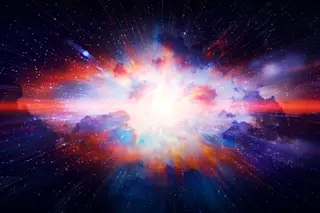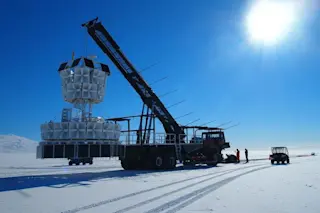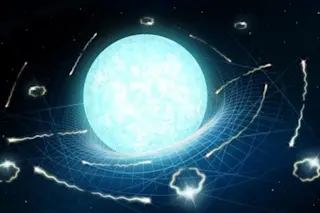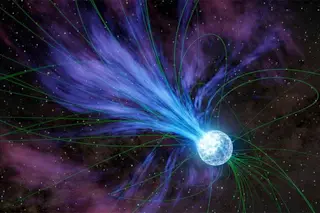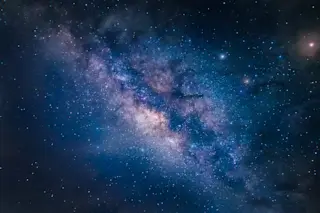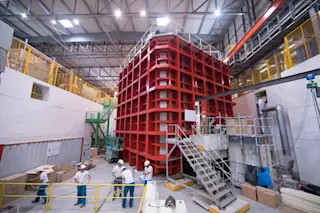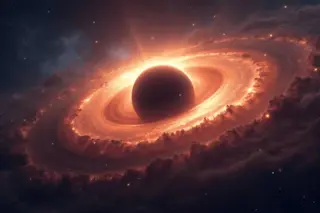Physicists announced last week that the Higgs Boson is light enough to make the Universe unstable, and predicted its catastrophic demise for several billion years from today.
Last summer, scientists finally found the long awaited Higgs Boson, a particle that, according to theoretical physics, gives all elementary particles mass. Without the Higgs, these particles would remain massless, and our bodies, blankets, cups of tea, dogs, and universe wouldn’t exist.
The Higgs particle is part of an equation that predicts the stability of the Universe, and now that we’ve found it, physicists can finally make calculations with that formula. For the Universe to maintain stability long term, the Higgs should weigh about 129 GEV. What they’re finding is that the Higgs is a bit on the light side, capping out at 126 GEV, and when that light weight is plugged into the equation---explosive universal demise ensues.
We think of a “vacuum” ...



